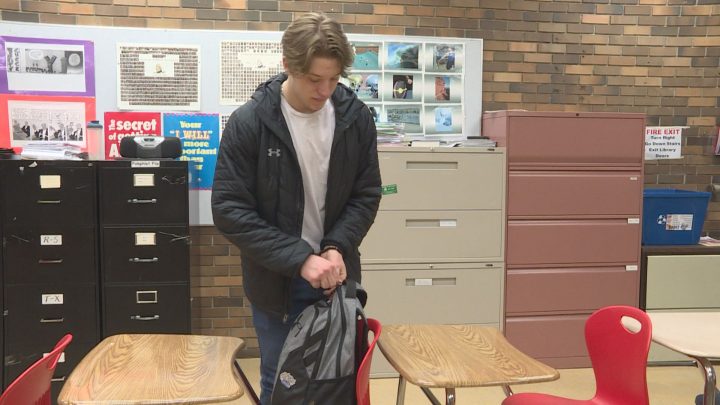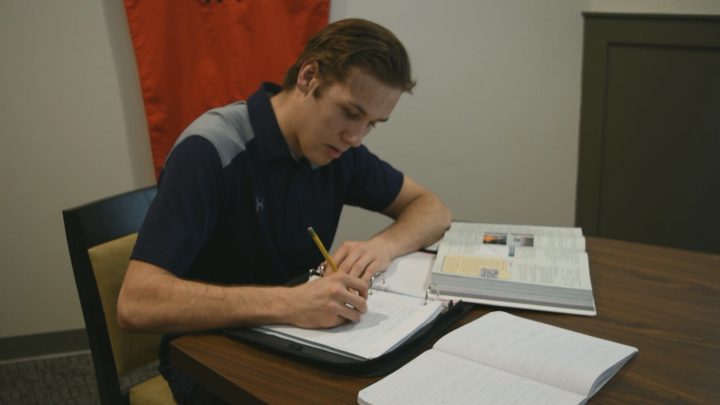The Western Hockey League prides itself on giving players the chance to develop their skills on the ice without compromising their academic goals.

“NHL careers and hockey careers don’t last forever,” said Greg Gardiner, the WHL’s director of operations and education.
Those words are not ones any aspiring professional hockey player wants to dwell on, but lucky for those who choose to play in the WHL, the league has thought about it.
“One-hundred per cent of the players that come through our league will graduate high school,” Gardiner said. “Each club has an education adviser on staff there to take care of the education needs for the players while they’re in the league — from the time they enter to the time they leave.”
Tutors are made available should the need arise and studying is mandatory.
Gardiner admitted, however, that wasn’t always the case. A generation ago, the league was viewed as a fast track to the National Hockey League and not much else. He pointed to the WHL’s scholarship program — now in its 25th year — for helping change that perception.
“Every year you play in the Western Hockey League you accumulate one year of scholarship benefits [that] cover school tuition, mandatory fees and required textbooks,” Gardiner said.
“So there’s a base amount based on the closest publicly-funded university in the player’s home province or state. They’re able to take that amount to any post-secondary institution across North America.”
Last year alone, clubs funded over $2 million towards scholarships.

Get daily National news
In recent years, upwards of 65 per cent of WHL graduates have been taking advantage of the program.
The WHL announced Tuesday that 405 graduate players were awarded scholarships for the fall and winter semesters of the 2018-19 academic year — the highest total for any academic year in WHL history.
Jake Neighbours, a WHL rookie with the Edmonton Oil Kings, said he feels he’s getting the best of both worlds.
“NHL is the goal,” said Neighbours, who was a WHL Scholastic Player of the Month earlier this year.
“That’s every kid’s dream to play there but having good grades is really important. If hockey doesn’t work out then you have the knowledge and the smarts to go on to post-secondary to have a good life that way.”
“I think it’s two Plan As that they have now instead of a Plan A and a Plan B,” Gardner added.
Paul Kurceba played for Red Deer from 2003 to 2006 and then Kootenay from 2006 to 2008.
He chose to use four of his five years of scholarship benefits to get his undergraduate degree at Acadia University. Kurceba went on to play a couple of years of professional hockey before returning to school to pursue a law degree.
“When everyone else was racking up student debt, I had free school paid for by the Western Hockey League,” said Kurceba. “On top of that, Acadia matched my scholarship, so I was actually getting paid to go to school, so it was a pretty good gig for me.”
Dr. Stephane Lenoski took advantage of a very similar situation as an undergrad at the University of Manitoba.
Freedom from any financial burdens allowed Lenoski to dream big, he said.
“You believe in yourself, you work hard and then things start to happen,” he said.
“Just the combination of sports and academics is a powerful thing… It opened up a lot of doors in ways I could have never imagined,” Lenoski said.
“I’m very grateful for my WHL experience.”




Comments